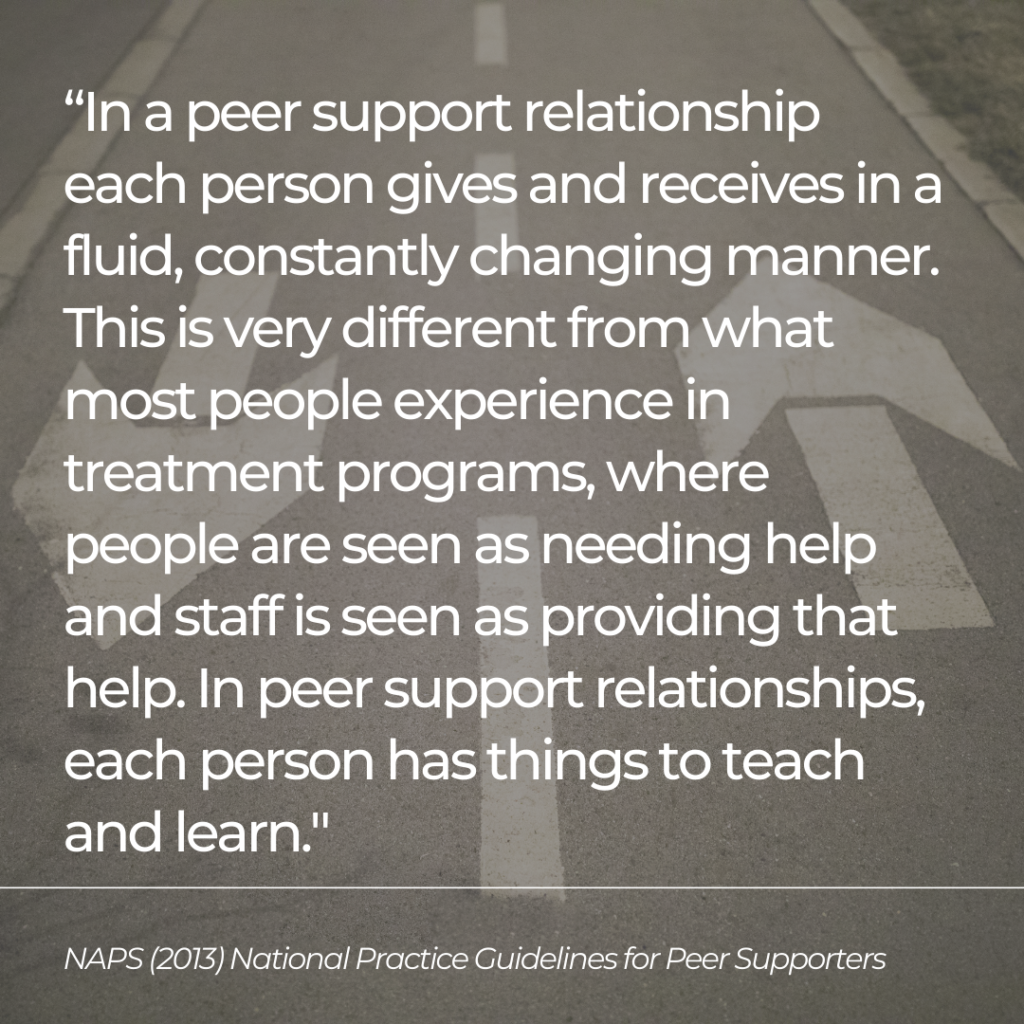Peer Support is an extremely effective and evidence-based mental health service that uses a person’s lived experience to help others in their recovery. This blog is part of our new yearlong series, where each month we will take a deeper look at what it means to work as a Peer Support Specialist and how to adhere to the 12 ethical guidelines created by the National Association of Peer Supporters (NAPS).
For this blog, we will be focusing on the guideline that states peer support is mutual and reciprocal.
 Why is this guideline important?
Why is this guideline important?
Think back on a time in which you’ve helped someone overcoming an obstacle, specifically during a time they may have been emotionally stressed. While you focused on helping that person in growing past their challenges, you may have also noticed that you yourself grew to understand that challenge as well. This is because supporting others can help us learn how to support ourselves. An article titled “In Helping Others, You Help Yourself” by Psychology Today discusses this exact concept, as well as a study that revealed our personal wellbeing benefits from assisting others as they work through stressors.
The positive effects of helping others is not a one-way street, but rather a cycle that continually flows between two or more people as they work together. So, as a peer support specialist, you are encouraged to learn and grow as you work with different individuals, recognizing that each person has something they can bring to the relationship. In allowing people to assist you in your personal growth, they themselves can also benefit from the experience of helping you.
What does this guideline look like in practice?
Unfortunately, those working in mental health services can sometimes fall into the trap of thinking that the person they are working with doesn’t have any self-help skills. It may be easy to think “They came to me for help, so it is on me to provide the knowledge and wisdom from my lived experience.” In some ways this is true, as you can be expected to share encouragement and provide support. However, most people have the internal wisdom to find their own path when provided with support, deep listening, and questions that help them clarify their situation. Peer Support Specialists should assume that the person they are working with has strengths that can be fostered and insights about their lived experience that can be discovered.
Many Peer Support Specialists I’ve spoken with have all had moments where the people they are working with are incredibly knowledgeable about certain community resources, and have relied on them to gather information about how to better serve others in the future. They have all acknowledged that being a Peer Support Specialist means that “you learn from people every day” and that it comes with the territory of working in the field.
When working with others, try to keep this in mind and be open to new knowledge or information that may be coming from your peers. If a topic or subject comes up that you are unfamiliar with, feel free to ask that person “Could you tell me more about that?” or perhaps try looking it up later. Remain engaged and remember that learning from others is all part of the process.
How to use this guideline moving forward
Those who have been working in this field for a while will undoubtedly agree that they get a lot out of the work they do with others. Positive growth inevitably happens when supporting others, and certainly isn’t exclusive to those providing mental health services. In a roundabout way, allowing individuals to provide support for you may actually support them in experiencing positive growth as well.
Open yourself up to receiving support from the people you are working with, and take time to acknowledge how your work together has influenced you. Peer Support Specialists are one of the few mental health providers in which this dynamic intentionally exists, and because it can be so effective in helping people realize their own strengths, having a mutual and reciprocal relationship present can become invaluable to the recovery and wellness of others.
